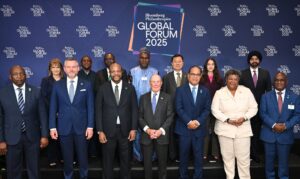
New York, September 24, 2025 – His Excellency President Wesley W. Simina joined world leaders at the Bloomberg Philanthropies Global Forum, held alongside the 80th United Nations General Assembly, where he delivered interventions at two high-level events: the High-Level Solutions Dialogue on Methane and the High Seas Treaty Roundtable Discussion.
Speaking at the Methane Dialogue, co-convened with the UN Environment Programme, President Simina underscored the critical role of methane reduction as the most immediate and effective step to slow global warming.
He reaffirmed the FSM’s longstanding leadership in championing the Global Methane Pledge, calling for compulsory oil and gas standards, scaled-up finance and technology, and stronger market incentives for low-methane production.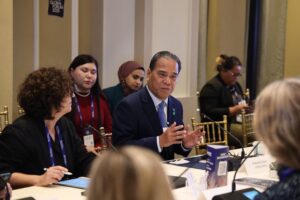
“The problem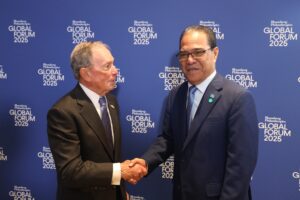 is not technical but political. Voluntary pledges are failing,” he warned. “Yet methane action is the most powerful, science-based, and cost-effective step this decade to slow warming and avoid tipping points. It is both a moral and legal obligation.”
is not technical but political. Voluntary pledges are failing,” he warned. “Yet methane action is the most powerful, science-based, and cost-effective step this decade to slow warming and avoid tipping points. It is both a moral and legal obligation.”
“We have done this before. Faced with the ozone crisis, leaders forged the Montreal Protocol—a treaty that saved lives and restored balance. We must summon that same courage for methane,” President Simina declared.
At the High Seas Treaty Roundtable, President Simina reaffirmed the FSM’s commitment to the full and timely implementation of the landmark Biodiversity Beyond National Jurisdiction (BBNJ) Agreement, also called the High Seas Treaty.
Highlighting the FSM’s pioneering role as the first State to sign and among the earliest to ratify the Agreement, he praised its groundbreaking recognition of coastal States’ rights, the needs of Small Island Developing States, and the traditional knowledge of Indigenous Peoples and local communities.
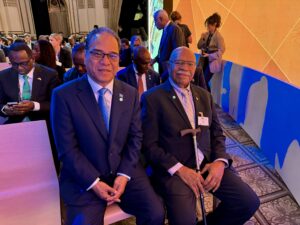 President Simina also welcomed ongoing partnerships with Germany’s Living High Seas Project and Chile’s First Movers initiative, announcing that the FSM is strongly considering a proposal to establish a marine protected area around the Remetau Group EBSA—a biodiversity-rich high seas
President Simina also welcomed ongoing partnerships with Germany’s Living High Seas Project and Chile’s First Movers initiative, announcing that the FSM is strongly considering a proposal to establish a marine protected area around the Remetau Group EBSA—a biodiversity-rich high seas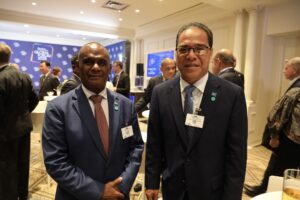 area bordered by the FSM, Palau, Papua New Guinea, and Indonesia.
area bordered by the FSM, Palau, Papua New Guinea, and Indonesia.
“This initiative will serve as a test case for implementing the Agreement’s key innovations, requiring close cooperation among States, communities, and international authorities,” he said.
President Simina’s interventions highlights FSM’s global leadership on two of the most urgent planetary challenges: slowing near-term climate change through methane reductions and safeguarding ocean biodiversity through the High Seas Treaty.
###

